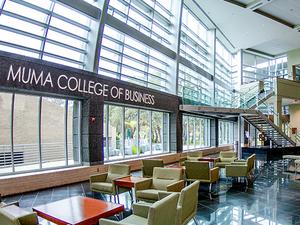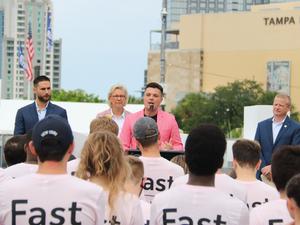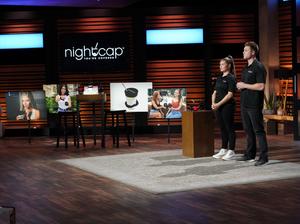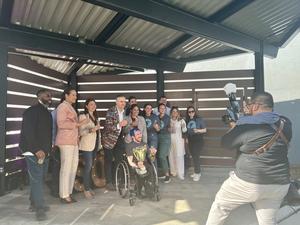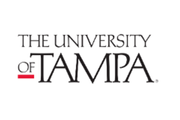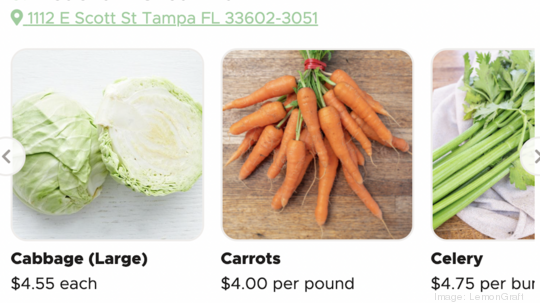
Zach Correa, fittingly, was gardening when he found out he made the cut for the first ever "How I Built This" fellowship cohort.
He had been a longtime fan of the popular NPR podcast and figured submitting his gardening tech startup wouldn't hurt.
"We applied but didn't think much of it; they had thousands of applicants," he said, adding his company became official the same month he applied. "But one day I was gardening and my wife runs outside yelling. My first thought was something happened to my son, but she was like, 'You got in, you got in.'"
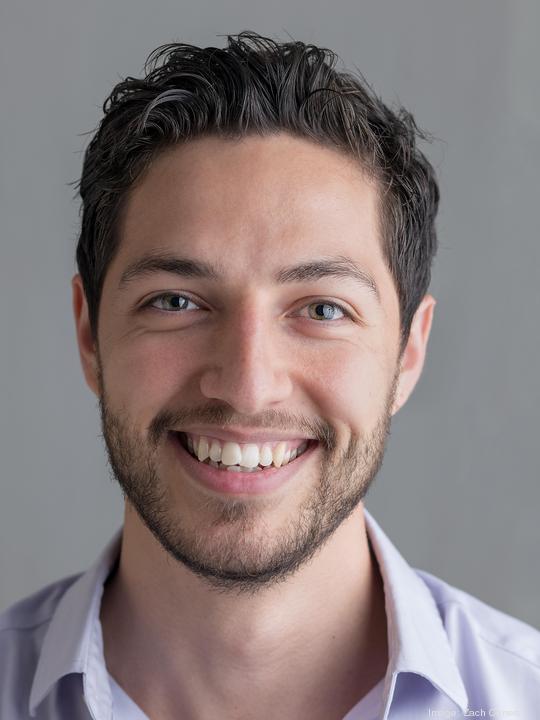
It was still a bit of a shock to Correa, who named his company lemonGRAFT, in part, as a nod to naysayers who called his idea a lemon. The company allows users in the Tampa Bay area to easily buy and sell produce they grew in their backyard.
"I didn’t believe it — I thought, there’s no way. We’re not a real thing [and hadn't launched to the public]," Correa said. "I had been told by everyone it was a bad idea. To have [podcast host] Guy Raz and his team see this and say, 'This will change the world' ... it was enormously validating."
Correa joined nine other companies in the How I Built This fellowship last spring, which connected the cohort with past entrepreneurs featured on the podcast, including founders of barre3, LARABAR, Spark Capital and Away.
"It was that fellowship, with them selecting us, that gave me the courage to say, 'This is worth doing,'" Correa said.
The idea originally stemmed from Correa's time as a Ph.D. architecture student, where he focused on building sustainable communities.
"I was trying to figure out the system to allow sustainable communities to emerge anywhere in the world and I realized food was the starting point," he said. "There was no scalable model for sustainable food. And that was the birth of lemonGRAFT."
The company closes the gap between those who have grown too much food for a single family but do not have enough — or time, money and patience — to sell at farmers markets or brick and mortar stores.
It allows buyers, sellers and "hosts" or those who wish to provide a venue to the growers and package the food.
"The market — the way it's set up — excludes small growers; the smallest thing is farmers markets which have a lot of barriers to entry," he said. "But the future of agriculture is community-based agriculture; if everyone contributes something we get an incredible network of food. And we believe the future farmer is the person who’s an architect with a mango tree in the backyard."
While Correa finished the fellowship last year, he's just getting started with his company. It officially launched last month and covers a roughly 100-mile radius in Tampa Bay, with plans to expand to a few additional undisclosed states in the near future. He hopes to have a nationwide presence by the end of 2023 and in "as many countries as possible" in the next 18 months.
He's also raising a pre-seed round for an undisclosed amount, which he hopes to close next month.
